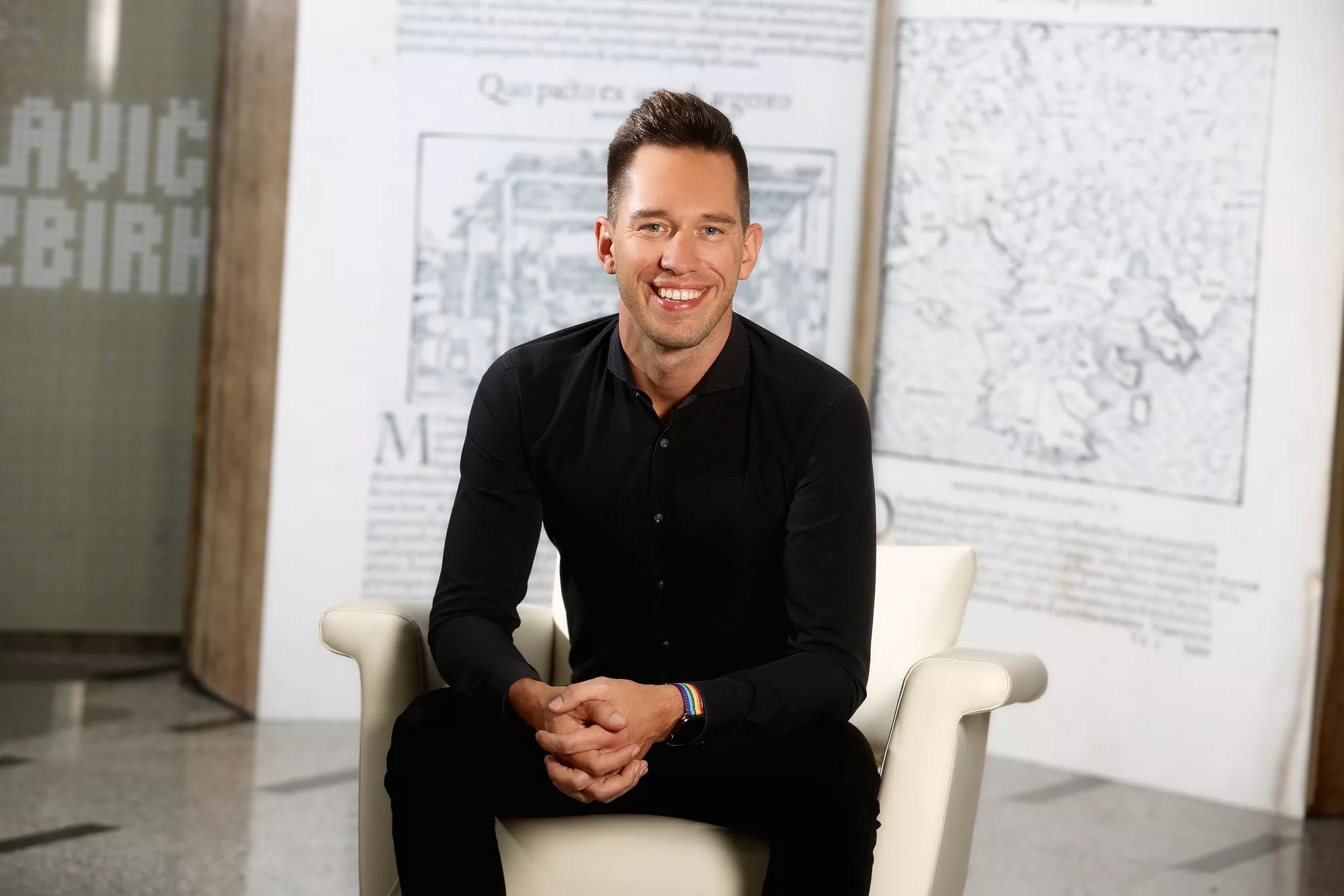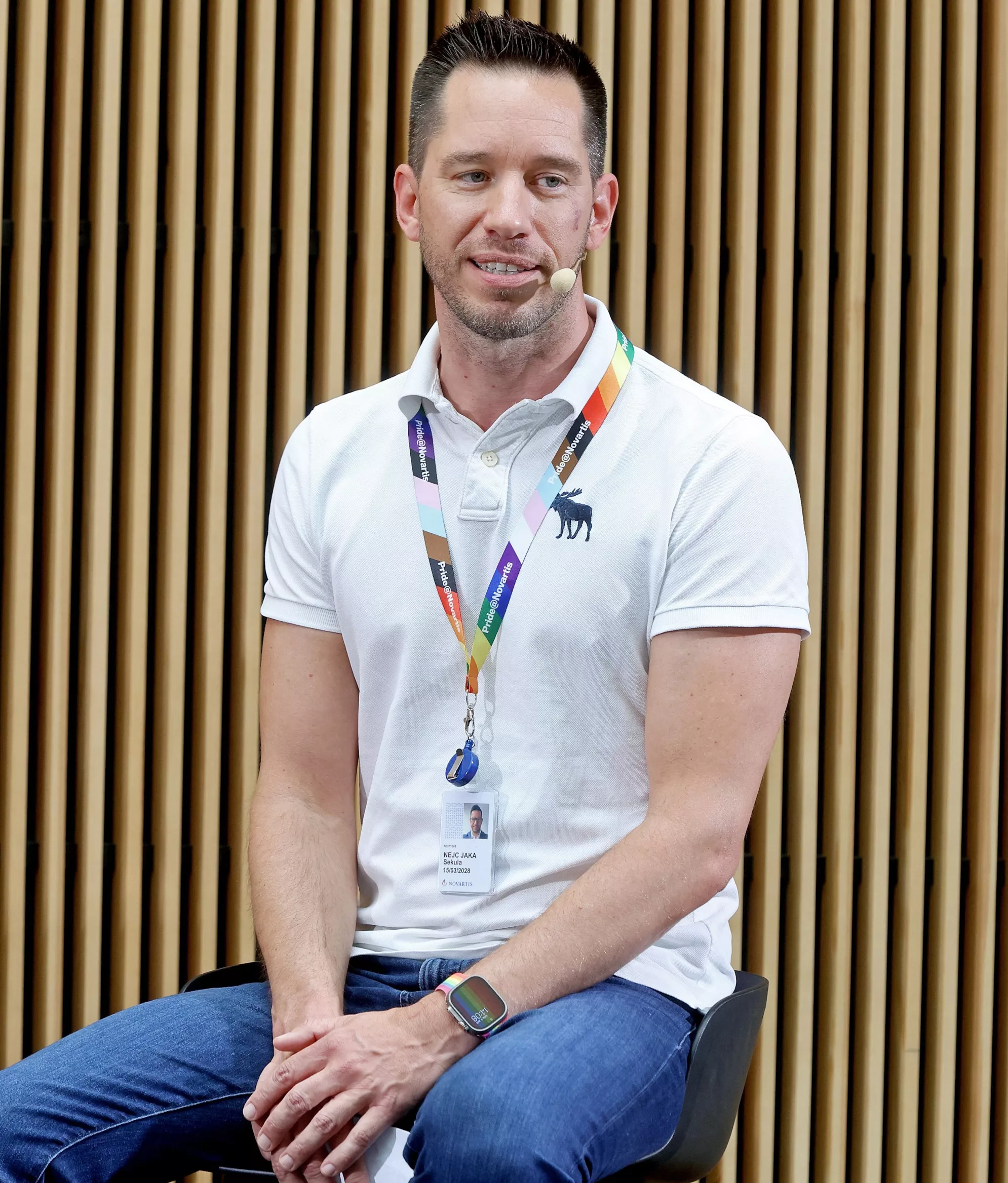At Novartis, we started developing a culture of empowerment in 2018. As it partly adapts to the environment and current situations, it is never fully formed. "Creating a company culture is an eternal journey," says Nejc Jaka Sekula, who has been on this journey at Novartis for almost a decade. He sees his main mission as working with his team to ensure that the diversity of individuals in the company is seen as a strength, not a weakness: "We empower our colleagues to use their energy to do what they do best. If you can be who you are, you can channel your energy in the right direction and use it to create innovative, effective and quality medicines for patients."
Diversity starts with patients
Diversity and inclusion are one of the key elements of Novartis' business strategy. "We encourage diverse opinions and experiences, knowing that our mission is to create ideas and innovation. We create an environment that celebrates the authenticity of each individual, which has a positive impact on employee engagement and well-being, as well as on innovation and productivity," emphasises Nejc Jaka. Diversity is also their guiding principle in drug development. "For us, it all starts with the patients. Our medicines are only effective if we also respect and take into account the diversity of our patients. We really live what we have on paper," he rightly praises the company's culture.
A culture created by employees
Novartis has 30 individuals responsible for the strategy and implementation of the culture, diversity and inclusion of its more than 78,000 employees. "Every action we encourage and tolerate, and every action we reject, is one that will create a culture," he explains. But our culture was not created in the minds of this relatively small team, but in our employees. "When we decided that our culture needed to change, we asked our employees what were the values and behaviours they wanted to see in the company." They identified communication as key: "It's important to discuss our expectations and bring them to the attention of those who are not meeting them. We are not perfect, but I can see that things are changing in the right direction".
Leaders as role models of company culture
Leaders also play a key role in creating culture. It is their job to live the company culture every day and to be role models for others. "A leader must first and foremost be authentic and have enough self-criticism to recognise what he is good at and what he is not," says the interviewee, who is himself a team leader. Expectations for leaders are high: "A leader first and foremost manages a function, secondly manages and develops people, and at the same time participates in teams to co-create results and hold accountable". As a leader, he wants to practise humanity above all: "I want to enable my employees to have what they need to do their job and develop, and to remove obstacles for them, while being a person who understands them and cares about them", he says.
Leadership as creating open space
"A leadership style that empowers and holds each individual accountable is one of our greatest strengths," says Nejc Jaka. "We give our employees power, their voice counts, their ideas are important because they co-create other ideas. Of course, there can be no empowerment without responsibility, which requires each individual to constantly develop, learn and change according to the environment. After all, we are in pharmaceuticals, discovering cures for new diseases, so we need to be inquisitive and learn new things to fulfil our mission." He places great importance on leaders empowering their employees and letting them be free to do what they do best. "I think it's key for leaders to create a space where employees feel safe - to speak up, to ask questions, to make mistakes and to learn from them," he adds.
We are among the leaders in inclusive culture
"I am proud to say that we are definitely among the leaders in diversity and inclusion in the workplace, thanks to the strong support of our leadership, which is sometimes almost more than we can deliver," he adds with a laugh. But other companies are also making more and more progress, and he credits this to the talent on the labour market: "The talent we want to attract is the talent that dictates and demands inclusive and diverse work environments, which I find extremely positive".
When he looks at his work and the culture of Novartis, he sees it evolving in the right direction: "I like that our work on diversity and inclusion is increasingly part of everything the company does, and that the leadership and individuals are aware of the benefits and the necessity of our work for the company. Our goals are to improve the experience of the individual, whatever their circumstances, and to make it fairer, more enjoyable and more inclusive," concludes Nejc Jaka Sekula.




